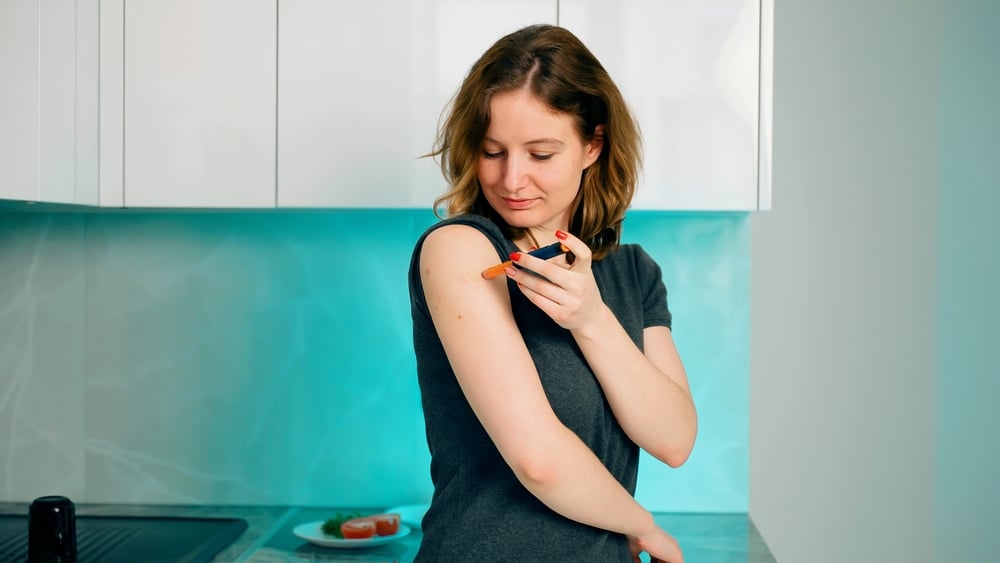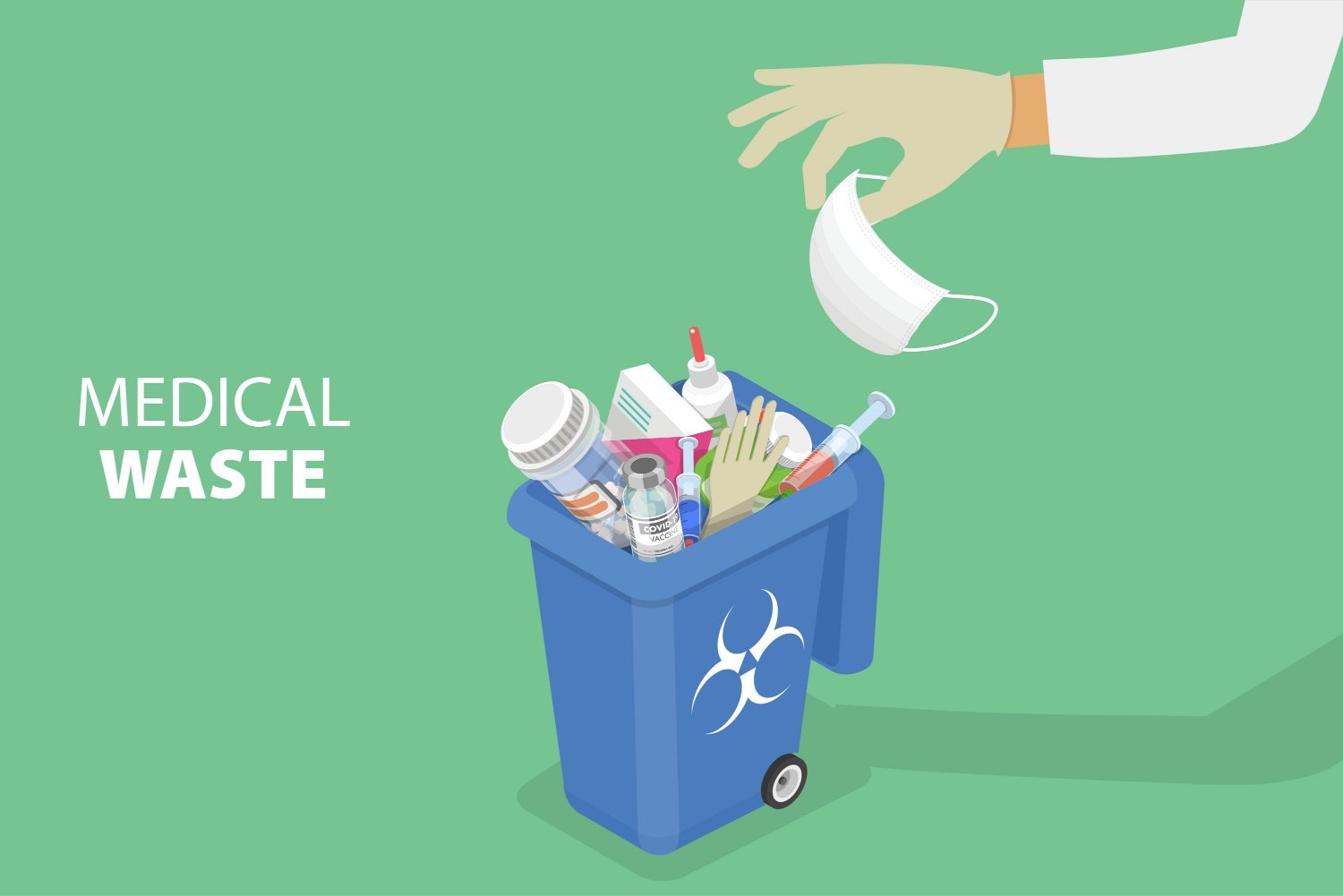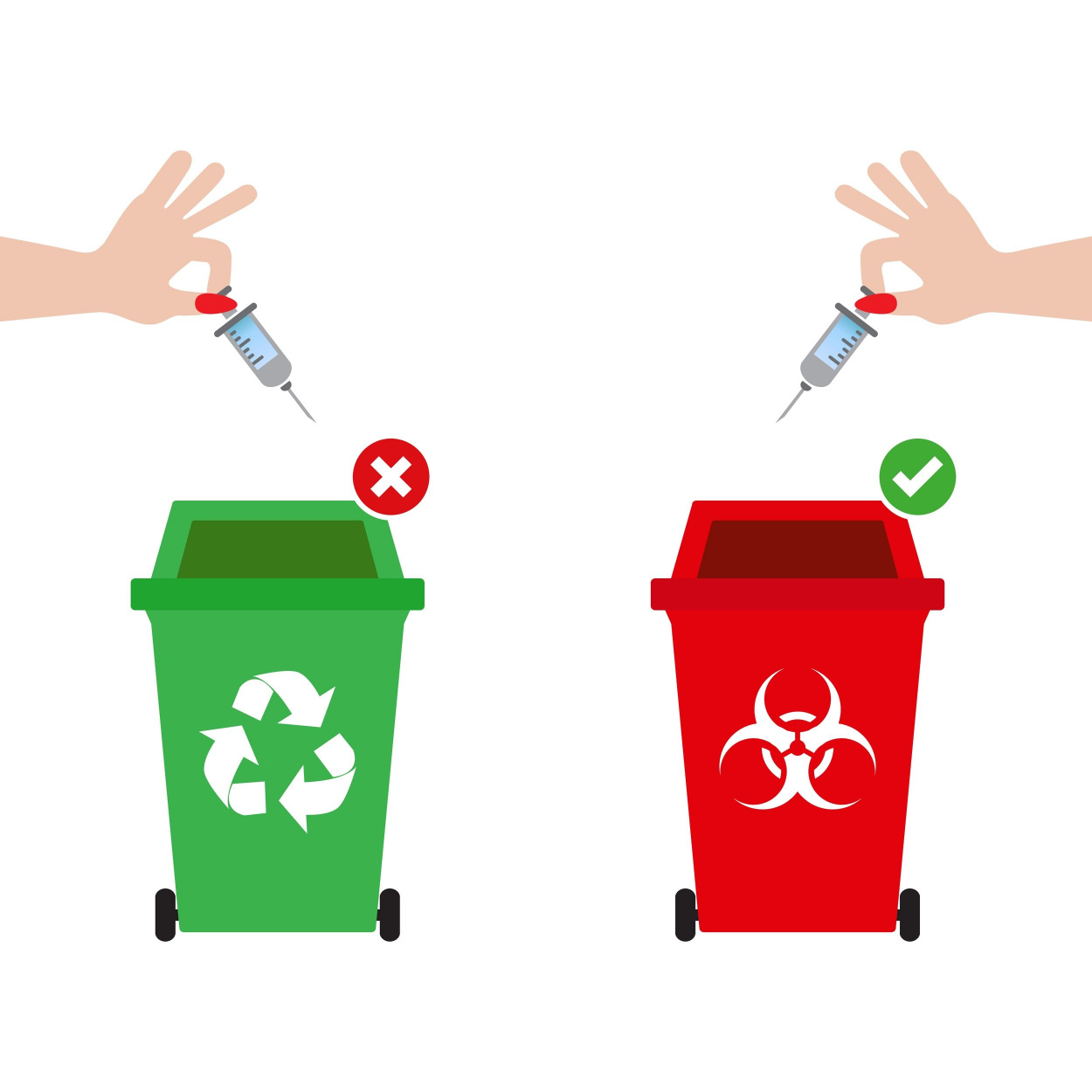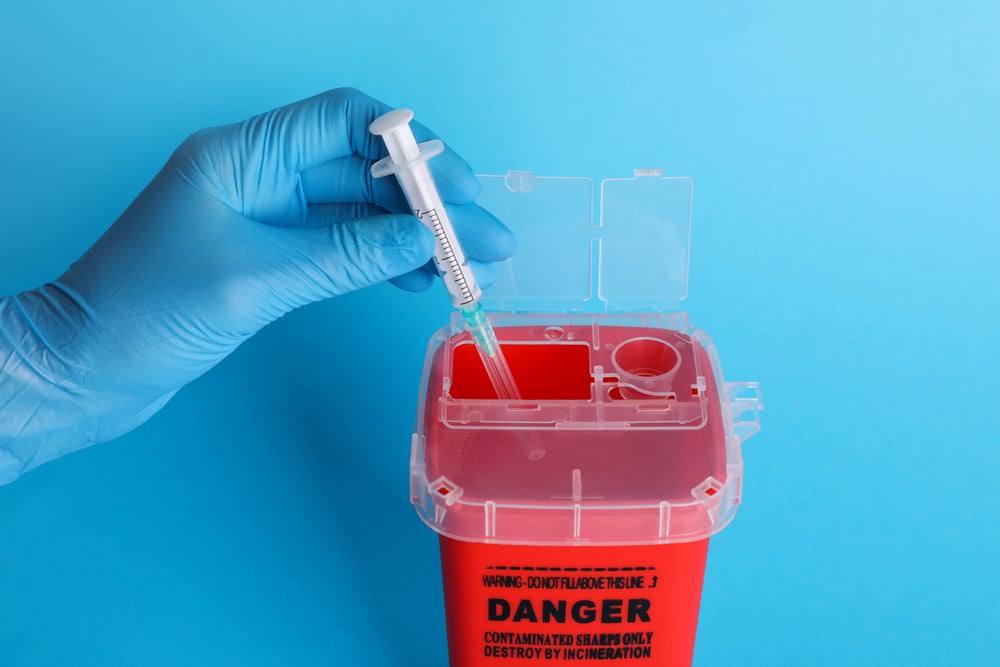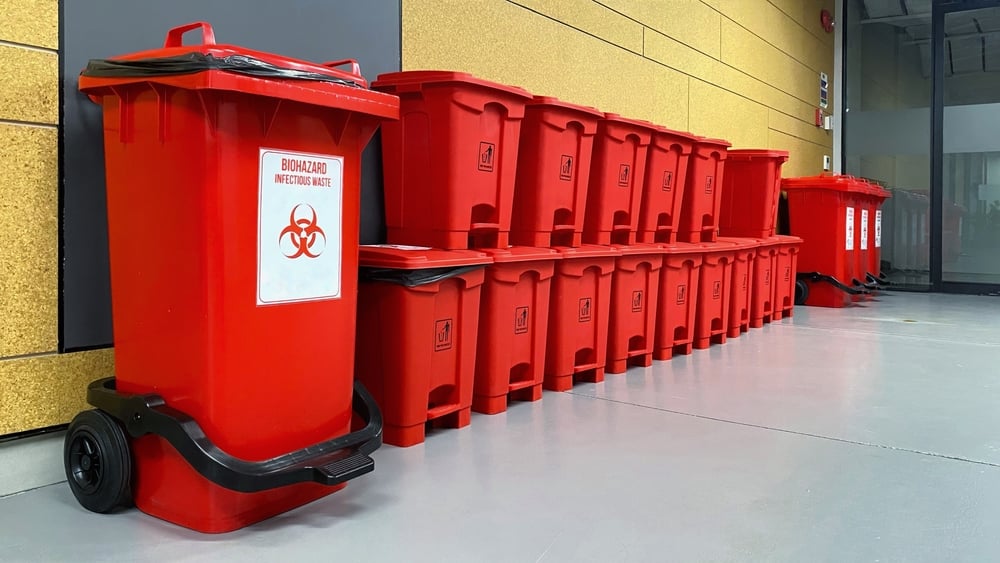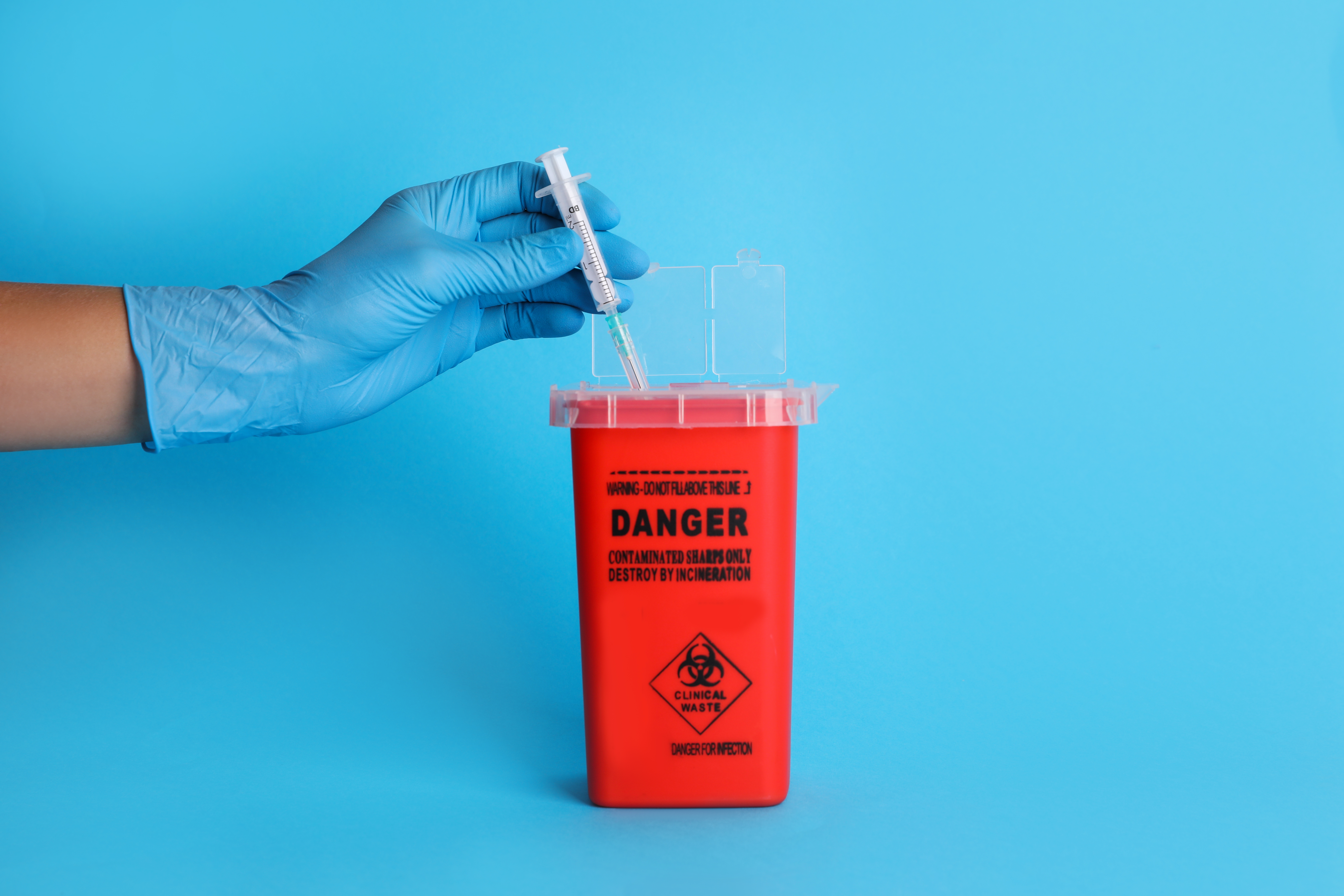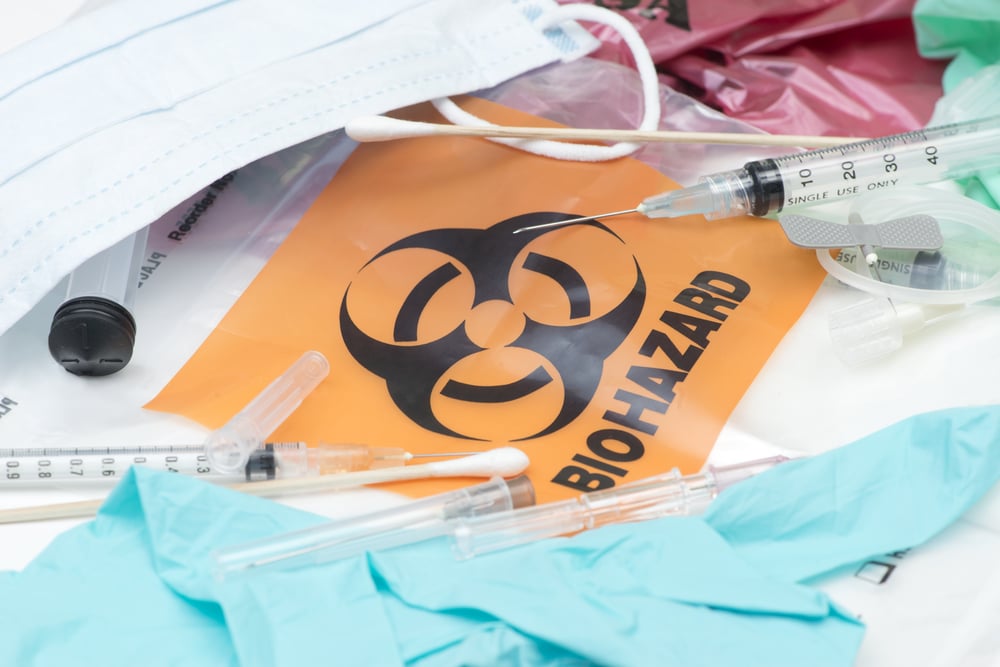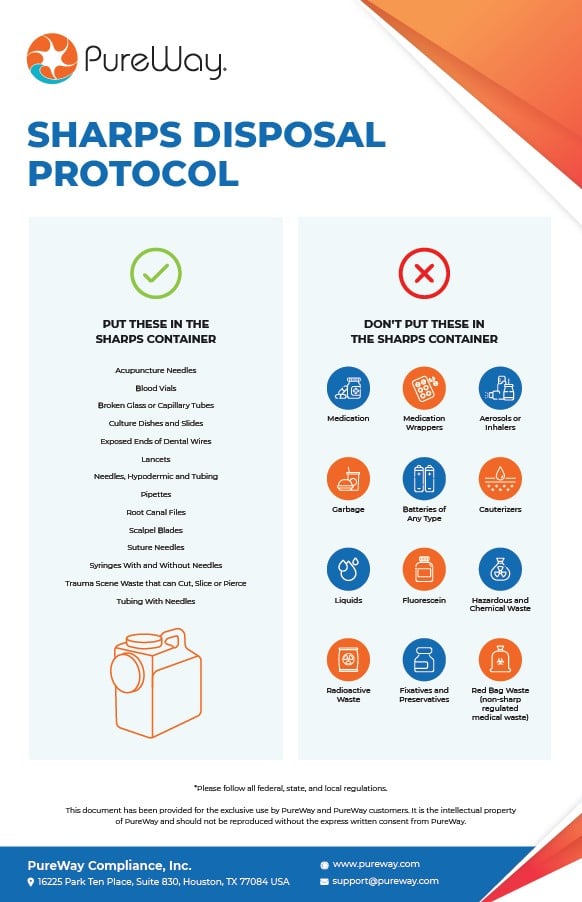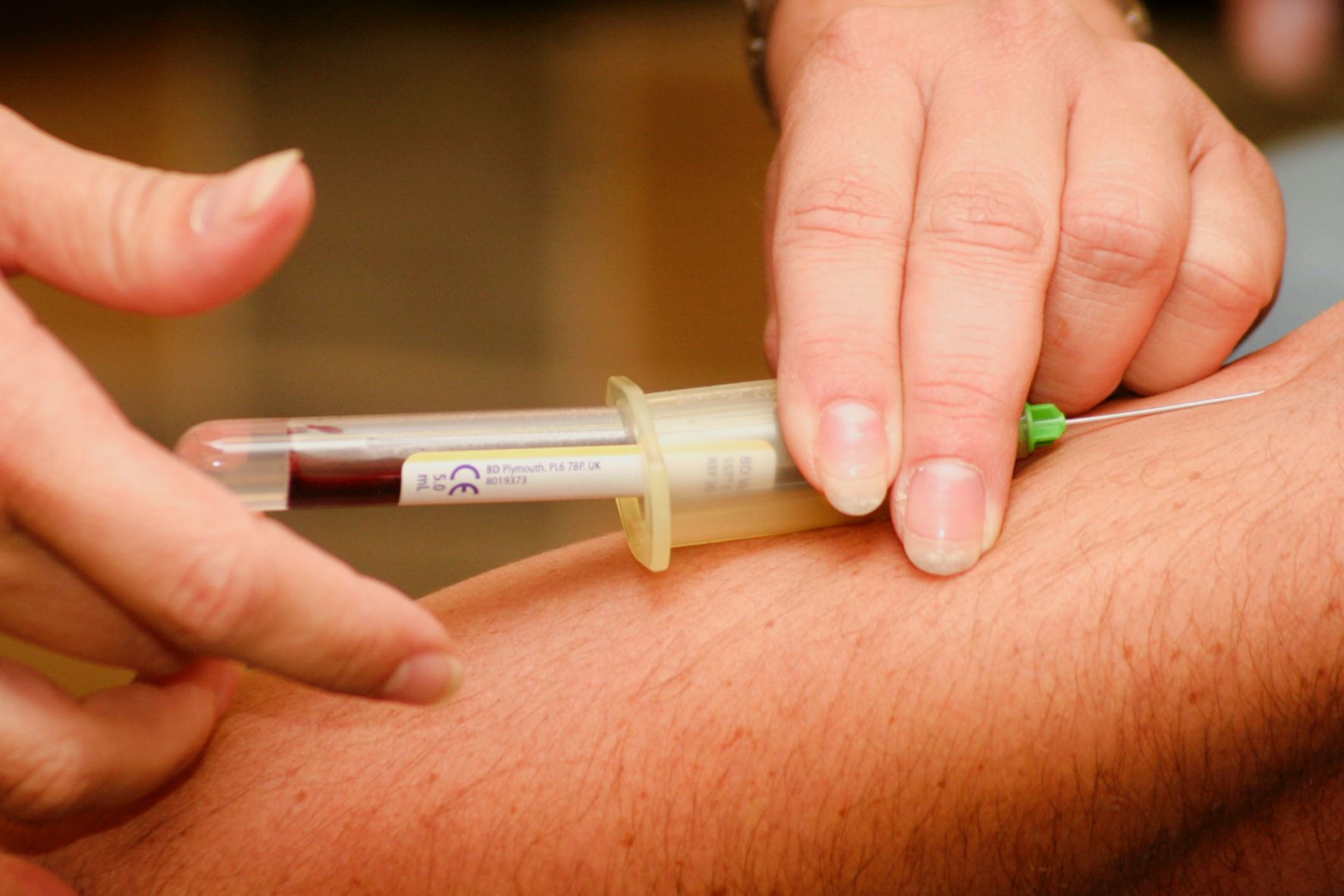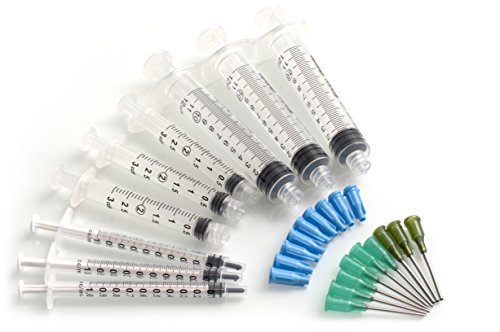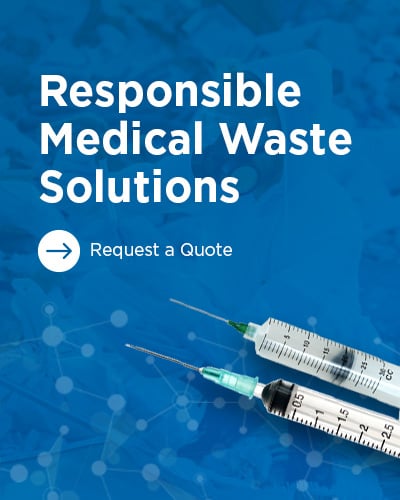How to Dispose of Needles Safely at Home Millions of Americans each year take injections at home for diabetes, arthritis, migraines or a vast variety of other health conditions. This process can be challenging and is not a easy or painless task, but it can be lifesaving. Do to the increase of self injectors at home there is a increasing issue related to how to properly dispose of your sharps once those injections are ...
Medical waste, often called healthcare-associated waste, refers to anything contaminated with blood or other potentially infectious materials. It can come from hospitals, clinics, doctor's offices, nursing homes, and even households. While most medical waste is not hazardous, some can be dangerous to human health and the environment if not correctly disposed of. According to the World Health Organisation (WHO), medical waste ...
Unsafe needle disposal is not only a danger to the person disposing of the needles but also to the community at large. When needles are disposed of improperly, they can end up in public places where children and adults can accidentally stick themselves. This can lead to severe infections and even death. Unsafe needle disposal is a serious public health hazard. It can lead to the spread of disease, infection, and environmental ...
A sharps container is a specialized container that stores sharp medical instruments, such as needles, syringes, and lancets. Sharp's containers are usually made of hard plastic with a lid that locks to prevent spills. Some sharps containers also have a secondary locking mechanism to prevent accidental opening. Sharps containers safely store sharp medical instruments until they can be disposed of properly. This helps to ...
Biohazardous waste is any liquid, solid, or container containing infectious materials or potentially infectious substances. Infectious materials are anything with a pathogen, a microorganism that can cause disease in humans or animals. This type of waste can pose a severe health and safety risk to both people and the environment if it is not disposed of properly. Proper biohazardous waste disposal is critical to preventing ...
Healthcare facilities are responsible for sharps container disposal. While there are many ways to dispose of these containers, the most important thing is to ensure that they are properly sanitized before being sent to a landfill or recycling center. The first step in disposing of a sharp container is to remove all of the contents from the container. This includes any needles, razors, or other sharp objects that may be ...
In 2022 as the COVID-19 pandemic continues on, the healthcare industry continues to experience many challenges related to their biohazardous and sharps waste (medical waste). Medical waste poses a serious health risk when left out, improperly contained, or incorrectly disposed of. It is important to be aware and informed about the health risks of medical waste and why proper disposal is essential. Health care waste is ...
Sharps Disposal For Healthcare Facilities Sharps Disposal Sharps Disposal can be confusing and intimidating when safely disposing of sharps at home or a healthcare facility. There are many risks associated with handling used sharps and disposing of them properly. Regulations have been put in place to keep the management and care of sharps as unthreatening as possible; however, many sharps are still being thrown out improperly ...
Biohazardous Waste Disposal Most people don’t consider the importance of Biohazardous waste disposal when it comes to staying healthy. That is mainly because there is a lack of education related to what it is, how it affects us, and who takes care of it. In this article, you will learn about biohazardous waste, how to dispose of it properly, and the risks associated. Let's start with the basics, defining what is Biohazardous ...
Maintaining proper disposal of medical waste is overwhelming. Between labeling, containment, and treatment, this issue has many healthcare facilities stumped as to their next steps in ensuring they are following federal guidelines. In this article we are going to cover: What wastes are considered to be medical waste? Most effective methods of disposal What Wastes are Considered to be Medical Waste? According to the World ...
Category
- sharps disposal (31)
- Medical Waste (29)
- sharps container disposal (26)
- Compliance (21)
- sharps mail back (20)
- Pharmaceutical Waste Disposal (14)
- Infection Control (13)
- Safety (13)
- Dental Practice (12)
- biohazardous waste disposal (11)
- OSHA (9)
- Hazardous Waste (8)
- amalgam disposal (8)
- patient support programs (8)
- Universal Waste (7)
- amalgam separators (6)
- vet sharps disposal (6)
- Hazardous Waste Disposal (5)
- News (5)
- amalgam recycling (5)
- dental clinical waste disposal (5)
- #GLP1 (4)
- Amalgam (4)
- ECOII Amalgam Separator (4)
- OSHA Training (4)
- News & Regulations (3)
- medication disposal (3)
- surface disinfectant (3)
- veterinary medical waste (3)
- HIPAA (2)
- flu vaccine (2)
- influenze (2)
- BioSURF (1)
- HIPAA Compliance (1)
- HIPAA Law (1)
- HIPAA Violation (1)
- RP Returns (1)
- improving patient experience (1)
- quart containers (1)
- sharps disposal for veterinarians (1)



